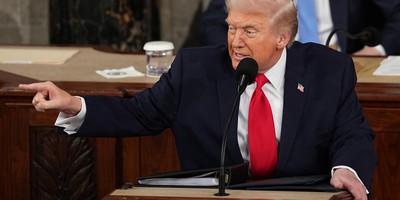President Donald Trump’s decision to end cost-sharing reduction payments to insurance companies, a controversial expenditure never authorized or appropriated by Congress, has set off a series of moves in the marketplace that leaves healthcare providers and consumers more confused than ever before.
Whether or not you believe these subsidies were a good idea (they were intended to reimburse insurance companies for losses suffered when issuing discounted deductibles and copayments to low-income individuals), the fact they’re ending is forcing companies to take a good, hard look at the services for which they are willing to pay.
Today, the race is on to find things to cut – even as premiums and deductibles are expected to rise once again as the November 1 open enrollment season has begun. Reforms are coming, and they’re long overdue, but policymakers must keep in mind the need to protect the nation’s most vulnerable patients – sparing important programs that work reasonably well. One is the public/private partnership Congress created in 1972 to bring predictability and profitability to private insurers by limiting their exposure to Americans living with kidney failure or end-stage renal disease, also known as ESRD. It’s far from perfect, and it’s not exactly the kind of thing a free-marketeer would build from the bottom up, but it works –to the benefit of all concerned including insurers, patients, providers, and taxpayers.
Quality dialysis care is a lifeline for the more than half a million Americans who depend upon it to filter their blood three times per week, in part because there are not enough organs available for transplant. Patients survive because of dialysis care and Medicare’s ESRD benefit which balances the needs of sick, vulnerable Americans and the economic complexities of providing their care.
Recommended
Anyone under 65 who develops kidney failure becomes eligible for Medicare coverage. Approximately 88 percent of individuals with kidney failure are currently covered by this program, which pays less than the actual cost of the care, according to data provided by the non-partisan Medicare Payment Advisory Committee.
The remaining small fraction of ESRD patients, roughly ten percent, have private insurance which typically offers more robust coverage and has fewer cost burdens for patients than Medicare, such as lower patient out-of-pocket expenses. Private insurance plans also come with higher reimbursements that better reflect the actual cost of providing dialysis care.
The partnership is a kind of cross-subsidization that allows providers to continue to innovate, sustain measurable quality improvements, and prevents unprofitable centers (about ten percent of the total) in rural and urban communities from closing their doors. At the same time insurers receive a sizeable benefit because their exposure to a seriously-ill population is reduced. Those who have private insurance are, under federal law, only required to use it as the primary payer for a maximum of 30 months until Medicare steps in and takes over indefinitely.
Some private insurers have already tried to push ESRD patients into Medicare prematurely by any means necessary. Some companies have engaged in deceptive marketing efforts, misleading patients into believing they have no other choice than to enroll in Medicare from the start. Some have gone so far as to offer financial incentives to assist with Medicare co-pays. Others have found more novel approaches, like dismissing patients who utilize charitable assistance programs to pay their premiums.
Kidney patients must be protected during the chaotic healthcare debate that is sure to come. Insurers must not be allowed to use this contentious political environment as cover to refuse coverage to beneficiaries by steering them to Medicare or not allowing premium assistance to maintain their private coverage.
Charitable assistance programs aren’t new. The nonprofit American Kidney Fund’s insurance premium program is a two-decade-old effort to provide premium support to low-income patients so they can afford and access the coverage of their choosing. Most of the 80,000 unique patients AKF helps through this program are Medicare beneficiaries who need help affording their Medicare Part B and Medigap (private insurance that helps pay for costs not covered by Medicare) premiums.
For those patients who have instead chosen private plans because they had private coverage before becoming ill, or because their state does not guarantee them access to Medigap if they’re under 65, AKF’s assistance makes it possible for them to access comprehensive care that helps manage a wide range of health conditions (like diabetes and high blood pressure) that can complicate kidney failure. Those enrolled in private plans, with the help of charitable groups, can save thousands of dollars a year since they do not have to pay the 20 percent copay required by the Medicare ESRD program.
While the charitable assistance programs themselves have been around for decades and have always been required to adhere to a strict set of federal guidelines, insurers recently began to refuse to take the money as a workaround to rid themselves of undesirable, costly patients.
It’s a discriminatory practice. It robs patients of their ability to freely choose from private healthcare plans with lower out-of-pocket costs and more extended care offerings. It’s creating chaos, confusion and upending patient care. Some patients say they’ve learned their premium payments had been rejected, and coverage terminated only when they arrive at the doctors’ office for an appointment. In a civilized society that brags about having the best health care system in the world, that’s just wrong.
It would be a shame if the chaos that has been created by ending CSRs were allowed to become another excuse for doing the wrong thing. The system works and should not be allowed to be destabilized. Doing so would only wreak havoc on patients and destroy a successful program that serves private and public interests equally well.

























Join the conversation as a VIP Member